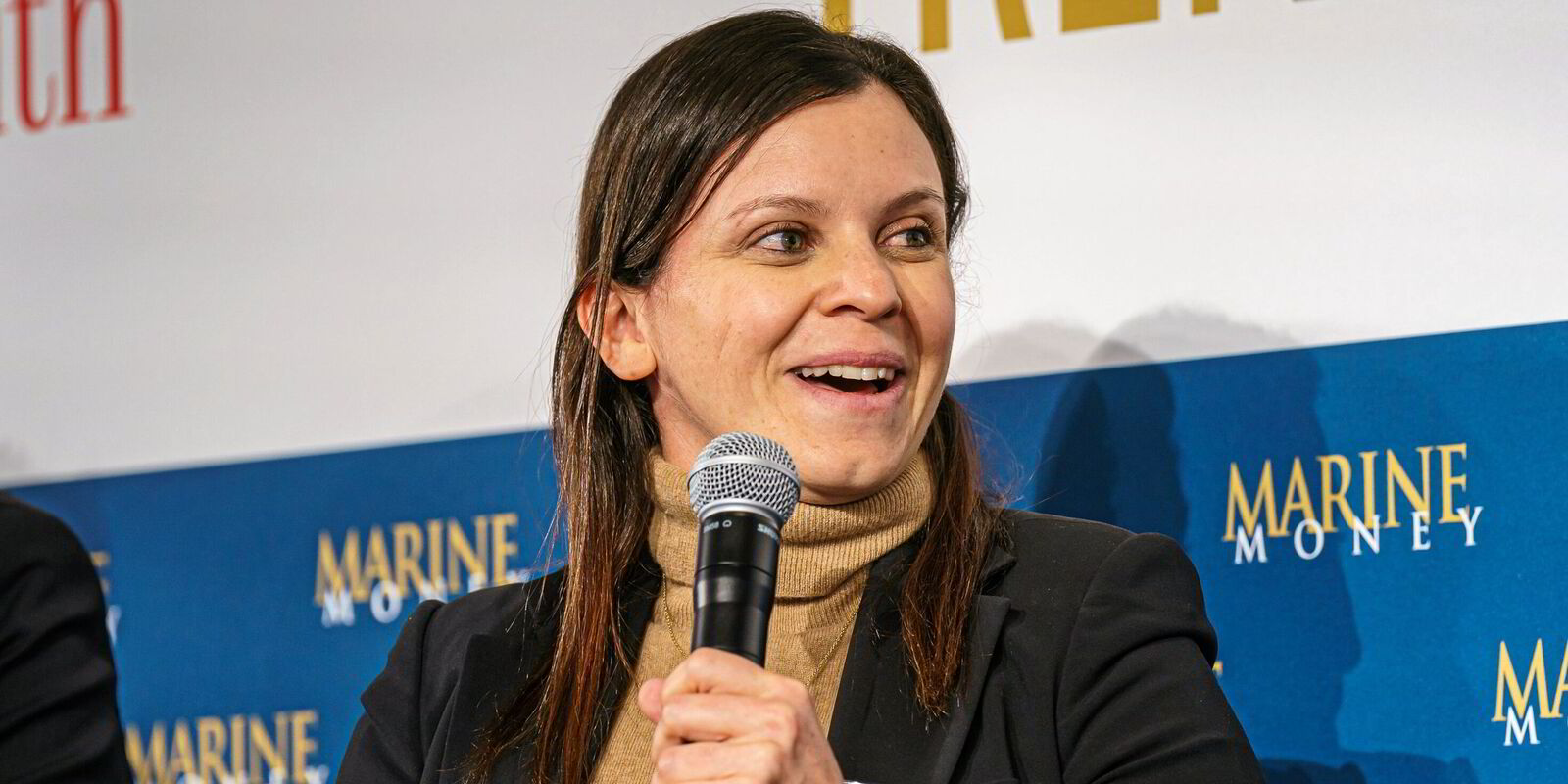US venture capital funds are finding renewed appetite for maritime technology investments as growing regulation meets a shipping industry ripe for upgrades, according to experts in the world of start-up financing.
The interest is a welcome sign for the maritime tech sector after a surge in capital during the Covid-19 supply chain crisis was followed by tighter markets for fundraising.
Marina Hadjipateras, general partner and co-founder of New York venture capital firm TMV, said maritime-focused firms like hers benefit from the growing interest from generalist investors.
“The generalist venture capital funds are really actively interested and recognising the untapped potential of the sector … which I think is fantastic, because I think more capital does need to go into the industry,” she said.
Hadjipateras is a member of the Greek-American shipping family behind LPG carrier owner Dorian LPG, and TMV is focused on investing in start-ups in four verticals: logistics, sustainability, care, and AI and automation.
It has invested in shipping software developers Secro, OpenTug and Signol, among others.
Article continues below the advert
Decarbonisation regulation is among the key drivers of interest in the maritime tech sector.
Kate Danaher, managing director of the oceans strategy at investment firm S2G, told TradeWinds there is still a wait-and-see approach to climate and impact investing amid the decisions by the administration of US President Donald Trump.
But she said the maritime industry has found its way into many more conversations with generalist investors than she expected.
Purus backer
Her firm began looking at maritime two years ago and has since invested in Purus, a shipowner and operator focused on green shipping, and Sofar Ocean, a marine weather intelligence provider.
Danaher’s firm hopes to make more investments in the maritime decarbonisation space after it released a report arguing that maritime companies that become early adopters of green technologies will have a competitive edge.

In the report, S2G identified AI-enabled voyage optimisation, air lubrication systems, wind-assisted propulsion and battery integration as near-term opportunities.
It said $1.4trn to $1.9trn in capital will be needed to decarbonise the industry by 2050, as called for by the International Maritime Organization.
But Danaher said that although a lot of people are interested in maritime decarbonisation tech, not a lot of people are investing.
She believes what is needed is “fit-for-purpose capital”, such as providing hardware-as-a-service models that emulate more investible companies in the software sector.
“How do we rethink fit-for-purpose capital and fit-for-purpose business models that can actually unlock some of the things that make it difficult to invest in?
“How can we use those models to unlock an opportunity?” she asked.
In April, the IMO agreed draft regulations aimed at pushing shipping towards that goal. Venture capital experts said that alone does not move the needle for investments in decarbonisation.
Stacked regulations.
Danaher said the IMO made a meaningful move, but how that stacks with the European Union and other regulations is what makes a real difference.
“It’s pushing people. But to me, what’s more compelling is that there’s the IMO and then the EU Commission and then regional policies making it [so that] if any one thing fails, it doesn’t mean the whole thing falls apart,” she said.

Hadjipateras agrees, saying that shipping and tech start-ups have already been operating as though the IMO regulation is coming.
“I think it just helps set a clearer floor,” she said of the new rules, which include a carbon pricing mechanism and fuel standard.
“I think investors, we think the real inflection point for investment will come from, like, enforceable mechanisms and carbon cost transparency.
“And overall, we’re looking at technologies that aren’t really chasing compliance, but creating defensible advantages.”
Among the biggest recent beneficiaries of the venture capital interest in shipping is not a decarbonisation play.
Orca AI, whose systems combine video monitoring with AI for shipping safety and optimisation, raised $72.5m this month in a Series B funding round led by Brighton Park Capital, which had not been known for maritime tech investments.
Yarden Gross, Orca AI’s co-founder and chief executive, said there has been a major shift in how investors are looking at the market in the past few years.
It is driven by the opportunity created by how conservative shipping companies have been in their implementation of new technology.
Now that ships are finally becoming more connected, investors see the opportunity to use technology to optimise a $100m asset.
Opportunity
“This is really starting to create interest and appetite for investors. How many industries, on this magnitude, are still left behind and are going through the change now?” Gross said.
“They’re starting to understand that the maritime industry is going through this change. It’s one of the last industries that is going through a massive change of technology adoption and AI.”
Hadjipateras said there is also increased interest in maritime defence and national security.

This is not the first time venture capital firms have trained their sights on the shipping tech sector.
During the crisis that gripped the supply chain during the pandemic, the start-up financiers were throwing cash at ventures that offered solutions.
That, however, was followed by a period of tighter venture capital market conditions, particularly in shipping tech, as investors in the sector took a harder look at which start-ups to fund.
Although interest is growing now, investors are still selective, Hadjipateras said.
“Investors overall, including us, are becoming a little bit more discerning,” she said.
“There was hype, there was saturation in the market, and now I think there’s a desire to look for tangible value creation.”








